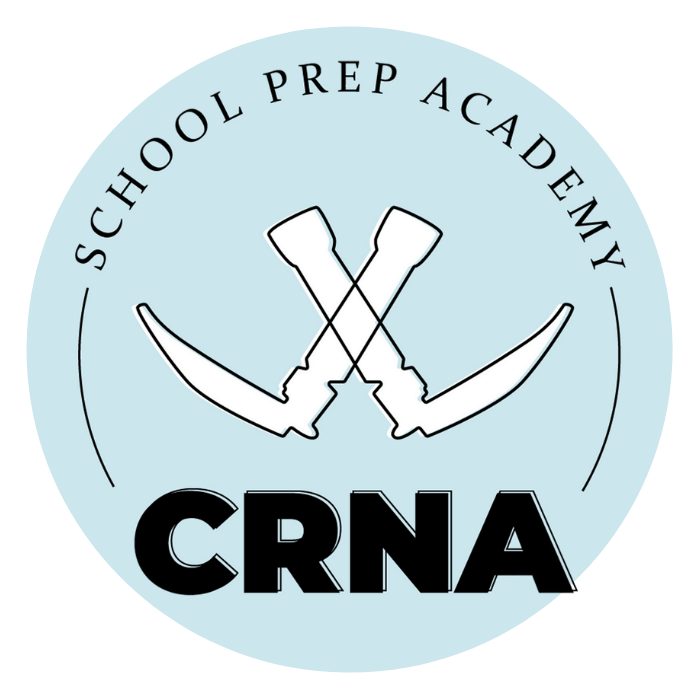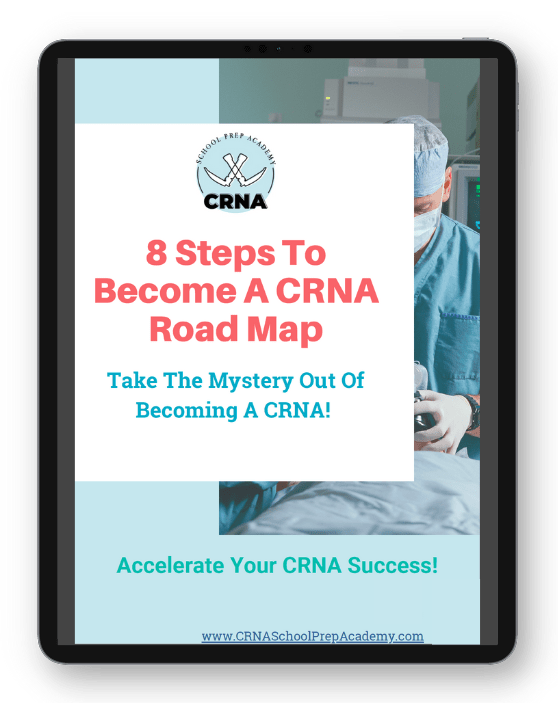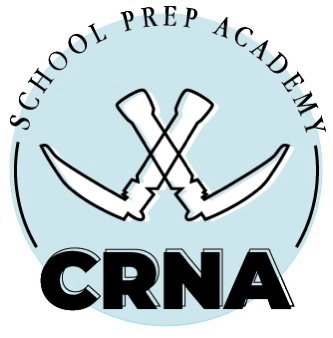
Are you nervous about attending your first mock interview for CRNA? The most important thing to remember is you have to be prepared. Listen to your host Jenny Finell as she shares her knowledge on the interview process and guidelines you need to answer well. You have to acquire the information you need to nail the interview!
Get access to planning tools, valuable CRNA Faculty guidance & mapped out courses that have been proven to accelerate your CRNA success! Become a member of CRNA School Prep Academy here:
https://www.crnaschoolprepacademy.com/join
Book a mock interview, personal statement critique, resume review and more at https://www.TeachRN.com
Join the CSPA email list: https://www.cspaedu.com/podcast-email
Send Jenny an email or make a podcast request!
Hello@CRNASchoolPrepAcademy.com
—
Watch the episode here
Listen to the podcast here
Do You Need A Mock Interview For CRNA?
We are in CRNA interview season as we speak. You may be wondering, “Do I need a mock interview?” In this episode, we’re going to get into what I think you should consider when making that decision, as far as whether you need to get a mock interview prior to your real interview. Let’s go ahead and get into the show.
—
One of the most shout-out services that CSPA routinely offered is mock interviews. With that being said, a new fun announcement is that we have officially launched Nurses Teach Nurses- Now Called TeachRN!. TeachRN is a platform where you can go book a mock interview, resume, personal statement edit and a whole lot more. We custom-built this website because we wanted to be able to serve you and provide more service providers and help around this area. Especially in mock interviews, all the services are highly sought after and praised from the mountaintops if I’m being perfectly honest.
We wanted a way to be able to provide more of them. It was in 2021 that we had turned down about ten people a week because we simply did not have the availability. My hope was that by this busy interview season, you’re going to be able to find a mock interview. However, I do know that if you’re thinking you need a mock interview, I would look ahead of time, especially if your schedule is busy because I do know they’re booking up quickly. With that being said, I wanted to discuss on this episode, whether or not you need to pay for a mock interview or you should be doing that. Let’s go ahead and get into my thoughts around it.
I should preface this with I feel mock interviews are a great way to go. However, I don’t always agree that you need to pay for one. I want to get into what are your alternatives if you decide not to do a mock interview and how you can gauge. I’ve had a lot of my students ask me, “How do I know how many I need?” I’ve had students who booked 4 or 5 mock interviews but I do not think everyone needs 4 or 5 mock interviews. That’s why I wanted to make sure I brought this topic to your attention. First, when do you need it? As far as the timeframe goes, if you think you will need a mock interview, I would plan to book one prior to your anticipated real interview.
A mistake I see a lot of candidates make is they wait until they get invited to an interview to start looking for a mock interview. By then, it could be too late, meaning there’s not going to be any availability. I also think some schools give very little notice. You might be thinking, “I didn’t get asked to interview. Maybe next year,” and then they’re like, “Can you come tomorrow?” You’re like, ‘I assumed I wasn’t getting one.” Don’t make that mistake. If you apply to CRNA school, plan on interviewing and practice interviewing. You should be practicing your interview skills prior to even applying to CRNA school. You shouldn’t wait until after you apply to CRNA school to get serious about preparing for the interview.
Please, know that my 100% heartfelt recommendation is to prepare for the interview at the same time that you’re actively applying to CRNA school. We all have different experiences. I interviewed for the medical ICU but I knew that staff well. I had worked there as a nurse’s aide. I wouldn’t say prior to CRNA school, I had truly experienced that type of interview. I had never been through a grueling interview before.
Pay attention to little things that you do when you’re nervous. Because believe it or not, you may not even notice you're doing it. Click To TweetWas I weak in interview skills? I sure was. I practiced with my parents. This was back in 2011. At the time, there was no CRNA School Prep Academy. I knew one current student in the program I wanted to attend but I equally remember thinking at the time going into my first interview, I was like, “I got this. I’ll do my best on my own. I’ll be fine. I’ll practice with some coworkers who are also in a CRNA school. I’ll practice with my parents and my sister. Anyone who will listen to me, I’ll practice with. I’ll practice in front of myself in the mirror,” which I did but I botched my first interview. I didn’t do so well.
I then reached out to the friend I knew who was in the program and asked her all kinds of questions. She gave me a great study guide and some great tips. I took them all to heart and went 100% in on the tips she gave me. I continued to practice interviews. I had my parents, with this practice list of questions I had, drill me. I was able to rock my second interview.
Three of my other girlfriends, we were all applying to the same school. We were each other’s competition yet we were friends. We’re like, “Let’s help each other.” We didn’t hold back. We shared everything we found out. The tips I got on the upcoming interview, I gave to them. We all practiced together. All three of us got in. It’s the power of sharing with your coworkers that are equally pursuing CRNA. The community support is huge.
That was what did it for me. My first attempt at a real interview also gave me a lot of insight that I was way underprepared. I was not as prepared for that interview as I thought I was because I didn’t know what to expect. Going into the second one, I knew more about what to expect, plus, I knew what style I was walking into so I could better prepare. That’s my first recommendation. Do you know your school’s interview style? They’re all different. Here’s the other thing- they can always change. It may have been one style in a year and they might have got a new program director or brought in a new interview panel and then they’re going to change it up.
That does happen pretty routinely. I also know they know that people talk so much that they even change it up day to day, even from interview to interview on the same day. They know people talk. They know the questions are going to be shared. They don’t like when that happens but they know by human nature, you’re probably going to tell someone. They have a giant bank of questions. Don’t get me wrong, they tend to have their favorites. They have ones they tend to like to ask almost every single time. Don’t focus much on the actual questions, as much as on practicing the style and assessing how you’re responding to that style. Catching whether you’re getting defensive or if you’re stumbling over your words, you’re saying, “Um,” a lot, looking at the ground, clicking your pen, rocking back and forth and sucking your thumb. Pay attention to those things.
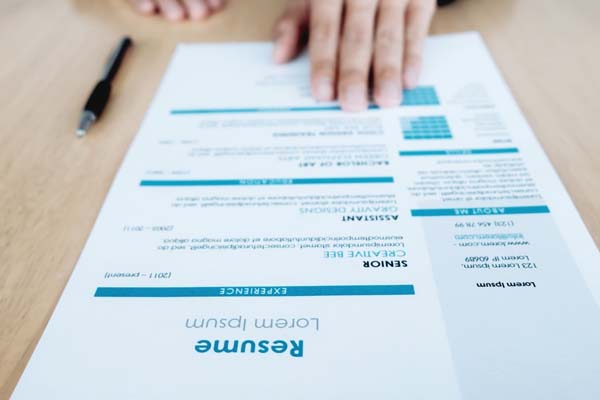
Believe it or not, you may not even notice you’re doing it. I always recommend our students inside CSPA to record themselves. Do not just do it in front of the mirror. Record yourself sitting in front of your webcam and having someone ask you these interview questions and watch your body language. When you’re nervous, your brain will freeze up. You won’t realize that you’re clicking your pen every five seconds. It’s distracting for the interview panel.
Interview Format
Knowing your interview format is one of the first things you should strive to do when preparing for your CRNA interview. If you don’t know your CRNA school interview style, I encourage you to try to figure out that first and foremost. The best way to do that is to connect with current students. CRNA School Prep Academy can connect you with a current student from your dream school. That is one of the things that we are good at doing inside the academy. You simply have to let us know and we can make sure that that happens.
Mission Statement
Next thing is to understand your school’s mission statement. You should understand who will be on the panel. What are they known for? Are they active in the ANA? Have they written papers on certain things? Are they published? Google stalk your program faculty. More than likely, they’re going to be on the interview panel. You should know who they are, what they stand for and what’s important to them. There are some program faculty who have done PhD papers on mental wellness. You know that’s an important aspect of who they are. Probably a good core mission of what the program strives to do for their students is to educate them while also incorporating and making sure mental wellness is a priority.
Not that you have to speak to that but you never know. It could come up in some other way in your interview. If you can speak to that and what it means to you, it’s going to resonate with that program faculty and they’re like, “They’re on the same page as me.” I’m not saying you lie. Don’t do that because they can read right through that. If you don’t agree with what they stand for, then try to find something else that you do agree with about what their mission statement or what the program faculty is known for. That’s an important aspect too. Also, do you think you can speak to your accomplishments? This sounds like, “I have my resume, Jenny,” but can you speak to them?
You’d be surprised at how many people are too shy or are like, “I’m too modest.” Don’t be modest. This is your time to sell yourself but you have to be able to speak eloquently, clearly, concisely and briefly to the point. You can’t have this long drawn-out 10 minutes synopsis to tell them 1 brief thing. You’re going to lose them. Think of social media. Get to the point, hit the highlights and capture their attention. It’s like a sales pitch where you have to get right into the point and capture someone’s attention.
It’s a lot of pressure to do a mock-up or review right before the big day. You need at least a week to process and review an actual mock interview. Click To TweetSpeaking To Your Weaknesses
I do these hooks for the YouTube channels. I have to introduce the topic because I want you to keep watching. If I say, “My name is Jenny,” I’m going to lose you. You’re going to be like, “Scroll, what’s next?” It’s the same thing when you’re speaking about your accomplishments. You want to make sure you’re doing it in a way that can capture their attention and keep them engaged. Can you speak to your weaknesses? This is huge and something I was caught off guard in my first interview because it had to do with an issue I had with a coworker. I had not thought of that. I struggled to try to come up with an idea. I ended up burying myself in a hole that I couldn’t get myself out of. I looked bad, even though it wasn’t bad. I didn’t know how to eloquently present it. I hadn’t thought about that.
“What would others say about you that’s a weakness?” They don’t say, “What’s your weakness?” They say, “What would your coworkers say they don’t like about you? What would your manager say you need to work on or if you came for your review and they said, ‘You had to work on X, Y and Z,’ what would that be?” That could be how they ask what is your weakness. Be prepared for them to spin that in different ways. Your CCRN, I want to mention that because that’s going to give you a good indication of your ICU knowledge base. If you haven’t had time to take your CCRN, maybe you didn’t pass your CCRN or you took it 2 or 3 times, ask yourself, how confident do you feel about them grilling you with pathophysiology and pharmacology questions.
The beauty of this is my favorite personal interview style. I don’t mind them both but back then when I interviewed, I would say, “Give me a pathophys and pharm question any day versus a personal question.” I had worked more on that aspect of who I was in my personal development at that point. I was in my mid-twenties. I didn’t know who I was. I was just Jenny from the block. Don’t get me wrong. I felt like I’ve grown so much since then that I can more eloquently explain who I am to someone than I could have when I was in my mid-twenties. There’s nothing wrong with that. It is what it is. I didn’t dedicate tons of time to thinking about who I was as a person.
It led me into this path of not being able to speak to that in the interview. That’s something to think about. Being asked pathophys and pharm questions equally makes some people cringe. They’re like, “I don’t want those types of questions. I will flop on my face if I get those.” If you know that about yourself, you do need to practice that. Sometimes people don’t know what they need. That’s where I’m getting into, “Do you need a mock interview?”
I would love to say you might know yourself but I equally also know from my experience what you don’t know. What’s great about a true mock interview from someone who has experienced a CRNA interview before, from someone who has the knowledge base that you need to know, is that they can pinpoint your weaknesses like that.

I had my parents do mock interviews. They had no clue what they were asking me. They’re like, “Jenny, that’s amazing. You blew my mind.” I was like, “Thanks, mom.” Having someone who has an understanding clinically and emotionally about what you’re going to be up against can give you that critical feedback that’s going to help you versus like, “Bravo.” You do need some critical feedback to be able to pinpoint your weaknesses and where you can improve. A lot of it depends on what you think you need but I also equally encourage you to be aware that you may not know what you need. A mock interview is never going to do you wrong, ever.
It’s only going to help you. Do you need more than one? I suggest doing at least one. If you need another one, book another one. I suggest trying 1, maybe 2 if you’re nervous about it. If you get hives and break out, you sweat and you’re like, “I’m going to freak out or have a panic attack,” book 1 to 2 months prior to your anticipated interview. This will get your feet wet and then you can decide, “How did that go?” From there, you can say, “I felt pretty good. I did better than I expected. I’m going to plan on doing one more, maybe two weeks before my anticipated interview.”
Anticipate it because if you don’t get a heads up and you have 1 week or a 4-day notice for your real interview, you might not find anything. I would book it when you anticipate having your interview and give yourself two weeks. The reason why you need to give yourself time is that you have to review that replay and the critiques and practice what they told you to practice. That’s why it’s important to give yourself at least two weeks prior to your real day. I have had students who want one the week of their actual interview. I’ve also had students do it the day before. That’s a lot of pressure to do a mock interview the day before. You need at least a week to process an actual mock interview.
Give Yourself Time
My recommendation is to give yourself at least 1 week but ideally 2 weeks. That’s my gauge. If you did one and you’re worried about it two months out, you bombed it and you’re like, “That was embarrassing and bad,” then do another one a month later. Work on things to improve. Practice in the mirror. Record yourself. Work on the things your critique teaches you on and then do one another month out. From there, do the same thing. Assess it. How did it go? “I feel so much better.”
You may or may not need a third one. If you feel good, cool. You’re good. You could also be like, “I am still nervous. Maybe one more will take the edge off.” You do one more. That’s how I would gauge how much you would need. Had I had the option to do a mock interview back in the day? I would have probably done at least three because I know that would have made me feel better and more confident. I bet you if I had done that, I would have probably gotten in on my first interview with no problem.
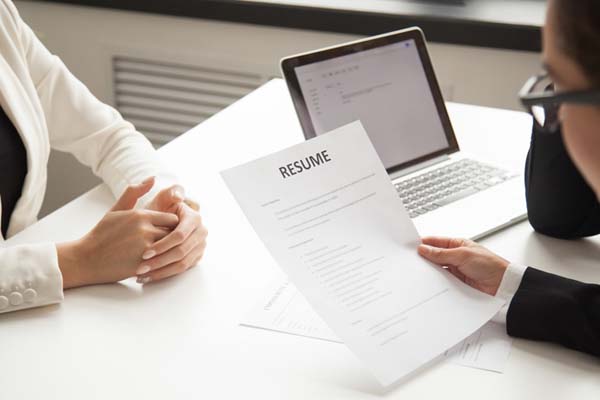
I shouldn’t say I bombed it. There are some things I did well. I did the pathophysiology and pharmacology questions well but I did not answer the personal questions well. A mock would point out that weakness and I would have been able to work on it. Would one mock interview be enough? It might’ve been but how much I wanted to become a CRNA knowing how I am? I’m type A so I would have probably done at least two mock interviews. I’m not saying you need to do any. Some candidates practice with their coworkers, friends or significant other. That’s all they need. They record themselves in the mirror. I did a mock interview with a student. I told her to practice my critiques and edits in front of the mirror prior to her big day and she did.
That’s all she had to do. She rocked it and got in. She said, “I appreciate you telling me to record myself because that was also a good way to practice after the fact to make sure I was making the improvements you suggested.” It’s up to you to gauge where you’re at. You can do a lot on your own. Connect with our community inside the CRNA School Prep Academy community. Pick a mock interview partner. Why not? I know both of you are like, “I don’t know what I’m walking into, Jenny.” You’d be surprised at how much you do know. We have over 400 interview practice questions inside of CRNA School Prep Academy.
You can mock interview for eighteen hours straight if you wanted to. Pick a bank of fifteen questions and make sure you both have different questions and practice with each other. You might as well use the community that’s here to support you. You don’t have to pay for a mock interview but I do think that it’s a good way to practice in front of a stranger. Equally, you can find a stranger in the community and meet and practice on Zoom. Why not? I sure would have taken advantage of that. I probably would’ve done twenty mock interviews with a stranger if I had a Facebook community that connected me with those people. Those are my recommendations. TeachRN is available too.
You can go ahead and book your mock interview. The site is open. You can also be a service provider. If you’re reading this and you’re like, “I could help a nursing student land an ICU position and prepare for that interview,” become a service provider. You can apply to become a service provider. It’s a cool platform. It’s like a freelancer marketplace. Essentially, you’re there to support the community through mentorship by providing a service. It’s fun to see students who advanced from CSPA who go on to provide mock interviews because that’s essentially what we did inside CSPA.
I had students that I knew would be great mock interviewers based on my experience and what I knew about them. They went on to rock it. Have faith in that. That’s a cool aspect that you can do. It’s a flexible way to give back and also earn cash in school. It gives back to the community. We have people shout people out from the mountaintops who do mock interviews for them because it makes a huge impact on their ability to successfully interview. Remember, the application is getting the interview. Passing the interview is getting acceptance.
I hope you found this episode helpful. I’m rooting for you. You got this. Come on, let’s do it. Be sure to share your win with me. I always love celebrating with you. If you don’t get in, share that with me too because I equally love to give you that big virtual hug, keep your chin up and keep you going. The yes is right around the corner. Until next time. Bye.
Important Links
Get access to planning tools, valuable CRNA Faculty guidance & mapped out courses that have been proven to accelerate your CRNA success! Become a member of CRNA School Prep Academy here:
https://www.crnaschoolprepacademy.com/join
Book a mock interview, personal statement critique, resume review and more at https://www.TeachRN.com
Join the CSPA email list: https://www.cspaedu.com/podcast-email
Send Jenny an email or make a podcast request!
